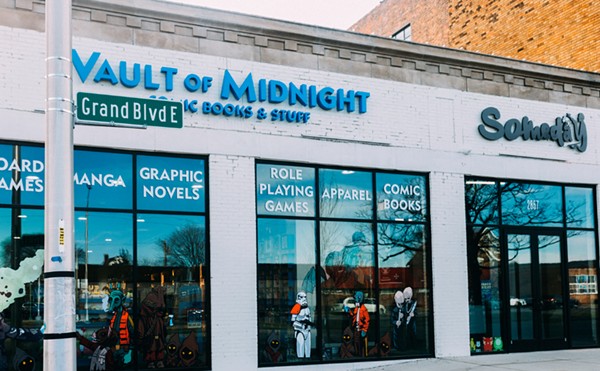A man gets off a train in a small provincial town in France. The town is quiet and the man, with his fringed leather jacket and permanent hangover demeanor, looks like trouble waiting to happen. But for now, he just has a headache and so he seeks out the local pharmacy in order to buy some aspirin. After leaving the shop and muttering to himself that he’s going to have to find some water for his pills, a mild-mannered old gent who has surreptitiously been observing the exotically thuggish stranger approaches him and offers him something to drink at his house nearby. And so begins Man on the Train, the story of two men of seemingly opposite temperaments and personalities who meet at a point in their lives when they’re both ready for a change and who see in each other an attractive approach to living that has so far eluded them.
The aging leather boy, Milan, is played by Johnny Hallyday, a French pop icon little known in the States, probably because French rock ’n’ roll has never traveled well. (Although he has his admirers outside his homeland, someone trying to rock out in a language tending more toward melisma than syncopation will always sound a little clueless.) But Hallyday, now pushing 60, has turned into a fine minimalistic actor, his blurry blue-eyed charisma making it unnecessary for him to do much more than present his weathered countenance to make an impact.
His low-key approach is matched by his kindly host, Manesquier, played, or rather underplayed, by Jean Rochefort. Rochefort is the kind of character actor you’ve seen a dozen times and who always manages to make a vaguely favorable if not too lasting impression. He has the slightly bored but somewhat self-satisfied air of a permanently displaced aristocrat, along with the mildly furtive look of someone harboring a vice of no consequence. He could be either a petty villain or a timid hero, and in Manesquier he’s been given a role that fits him like a glove.
Manesquier is a retired teacher who still does some individual tutoring and lives alone in his large and comfortable house, visited occasionally by his sister and his longtime girlfriend. It’s a mapped-out life with well-worn grooves. Milan, who fancies himself a bit of a cowboy, is in town to rob a bank. Manesquier is chatty, Milan tight-lipped. Circumstances conspire to make Milan’s brief visit to Manesquier’s home a longer stay and it soon becomes apparent that the men are drawn to each other from a combination of curiosity and envy. Manesquier covets Milan’s leather jacket and risky lifestyle, and Milan wants to try out his host’s pipe and comfy slippers. Each character tries to imagine himself into the other’s personality and for a while it seems like we’re going to see a comic version of The Servant, that Joseph Losey-Harold Pinter classic of sinister identity merging.
But the movie is heading somewhere else, toward the day of the bank robbery which, coincidentally, is the day that Manesquier is due to have triple-bypass heart surgery. This leads to a leap-into-the-mystic denouement that seems out of sync with the rest of the story — and also like a bit too desperate attempt to give a nicely ambling tale a “strong” finish.
Man on the Train is directed by Patrice Leconte and written by his frequent collaborator, Claude Klotz. Looking at Leconte’s oeuvre, which includes Ridicule, The Girl on the Bridge and The Widow of St Pierre, you get the impression that, like Bertrand Tavernier, he’s liable to direct anything, as long as he finds the story sufficiently intriguing. The consistencies that his admirers see in his movies seem to be less a reflection of a directorial approach manifested by a certain style than the consistencies of a certain solid type of drama, where the events cause the characters to go through some sort of metamorphosis.
In any event, Leconte is the kind of craftsman who instills a sense of confidence in the viewer that the tale is going to be told in an intelligent and measured manner, and with impressive though unobtrusive visual acuity. Five minutes into any of his films and you relax, knowing that whatever lapses there may be in the story, the telling is going to remain sure.
Showing exclusively at the Main Art Theatre (118 N. Main, Royal Oak). Call 248-542-0180.
Richard C. Walls writes about film for Metro Times. E-mail [email protected].





